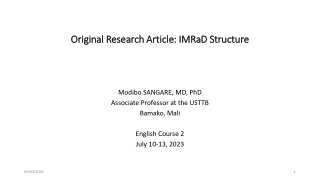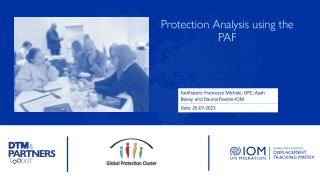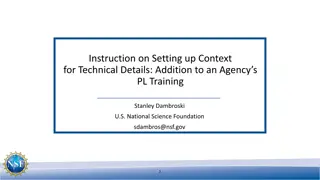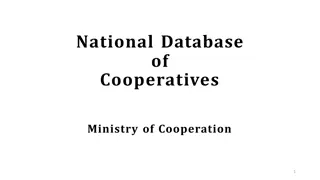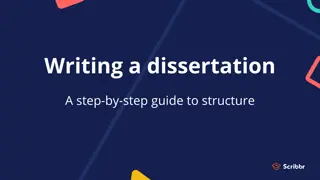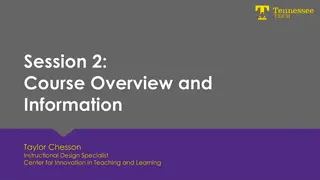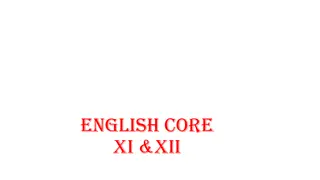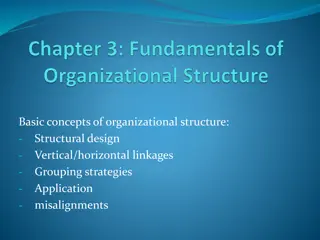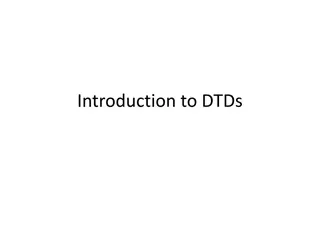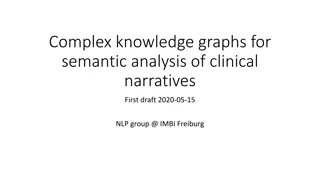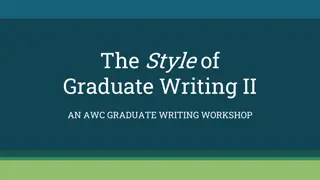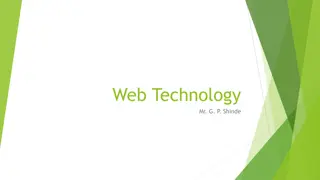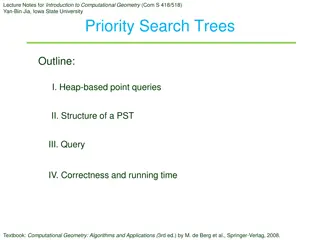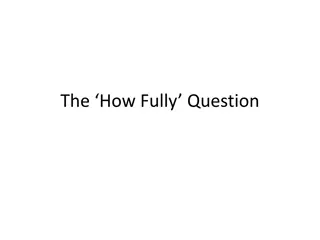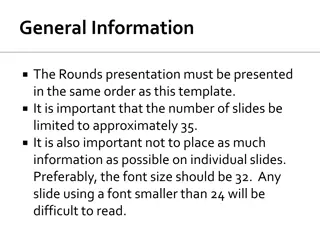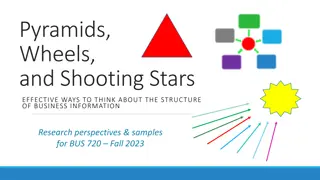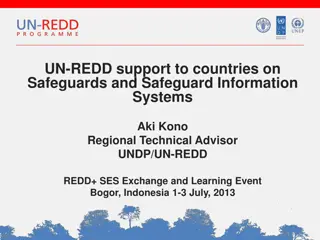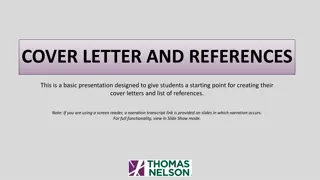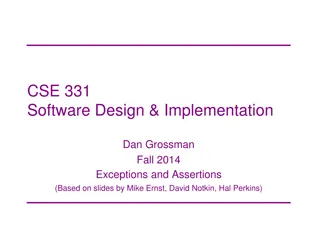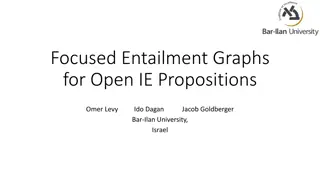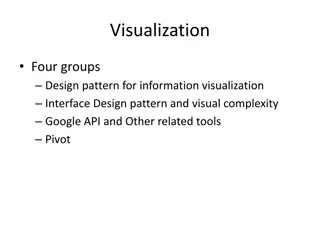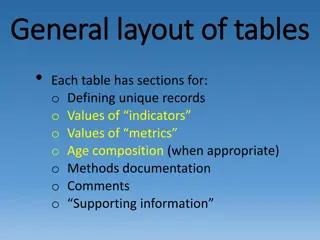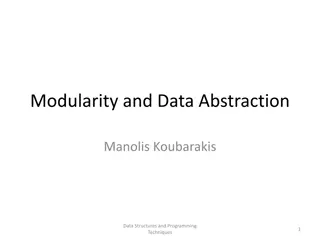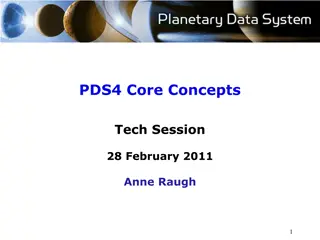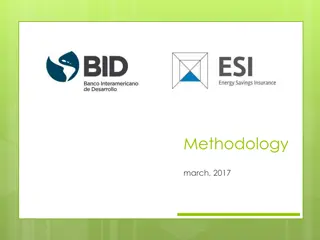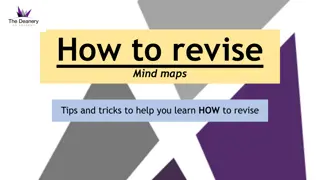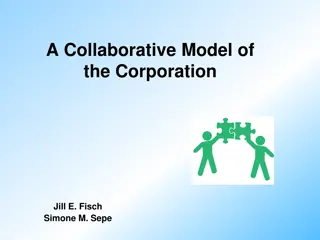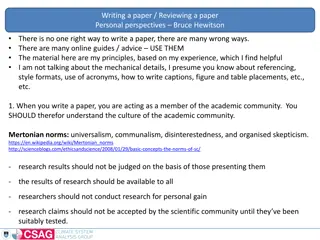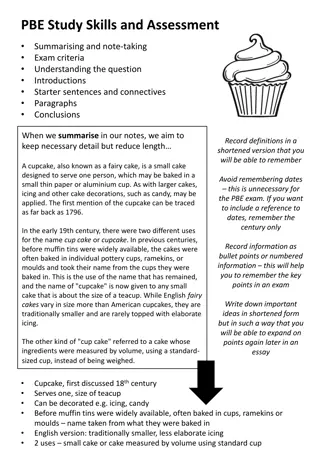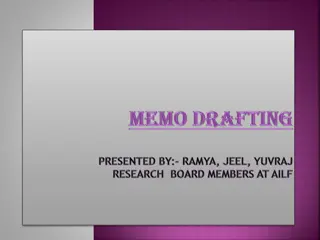Effective Strategies for Research Article Structuring
Dive into the intricate world of research article structuring with a focus on IMRaD format, qualitative research methods, and diverse research methodologies. Explore a wealth of resources and guidance to enhance your academic writing skills and elevate your research publication potential.
0 views • 39 slides
Protection Analysis using the PAF
In this session, participants will learn how to utilize the Protection Analysis Framework (PAF) and its tools to conduct effective protection analysis. The session covers an overview of PAF, understanding its pillars, and analyzing data to comprehend essential protection concepts. Key points include
5 views • 48 slides
Dissertation Guidelines for Mathematical and Statistical Studies
Guidance notes and timeline for structuring and submitting a dissertation in mathematical and statistical studies. Details include dissertation requirements, submission deadlines, penalty tariffs for late submission, and important information sources.
1 views • 26 slides
Helpful Assistant for Content Creation
This helpful assistant generated a title, summary, tags, and detected the language based on user-provided content. The assistant provides guidance and support in organizing and structuring information effectively.
1 views • 15 slides
Jean Monnet Module Doha Course on European Union Law Policy Brief Writing
Welcome to the course on European Union law and policy brief writing by Dr. Rafael Brown, Clinical Associate Professor at Qatar University. The course covers topics such as policy brief planning, structuring, and supporting with evidence, aimed at enhancing participants' understanding of policy issu
1 views • 35 slides
Structuring Information for Readability and Clarity
Principles of structuring information play a crucial role in enhancing readability. By framing content with familiar information before introducing new details and explaining the significance early on, writers can create a coherent context for readers to understand and retain information effectively
1 views • 5 slides
National Database of Cooperatives: Ministry of Cooperation Initiatives
The Ministry of Cooperation is developing a National Database of Cooperatives to enhance transparency, governance, and policymaking in the cooperative sector. The database aims to provide comprehensive information on cooperatives across sectors, improve coordination among stakeholders, and facilitat
0 views • 22 slides
Effective Dissertation Writing: Step-by-Step Guide to Structuring Your Work
Crafting a dissertation involves various essential components, from understanding what a dissertation is to structuring its sections like front matter including the title page, acknowledgements, and abstract. It's crucial to follow guidelines, especially for the sections' variations based on your fi
0 views • 32 slides
Enhancing Course Orientation and Engagement: Tips and Strategies
This course overview and information session delves into the importance of providing a comprehensive course introduction, syllabus breakdown, access instructions, and contact details for learners. It emphasizes creating engaging announcements, utilizing welcoming videos effectively, and incorporatin
3 views • 21 slides
Mastering Note-Making Skills for Effective Learning
Note-making is a crucial skill for condensing large volumes of information into concise, organized summaries. It aids in remembering key details, preparing for exams, planning presentations, and engaging in discussions. This practice requires selecting and extracting relevant data, using abbreviatio
1 views • 20 slides
Understanding Organizational Structure and Vertical/Horizontal Linkages
Organizational structure encompasses formal reporting relationships, department grouping, and system design for effectiveness. By structuring for efficiency, organizations prioritize vertical communication and centralized decision-making. In contrast, a learning structure emphasizes horizontal commu
0 views • 30 slides
Understanding Document Type Definitions (DTDs) in XML
Explore the world of Document Type Definitions (DTDs) in XML, which act as blueprints for structuring and governing XML documents. Learn how DTDs help in organizing information, controlling document markup, and ensuring the validity of XML content. Uncover the capabilities and limitations of DTDs, a
0 views • 17 slides
Semantic Analysis of Clinical Narratives Using Complex Knowledge Graphs
Need for improved semantic analysis of clinical narratives for information retrieval and decision support is addressed through the use of complex knowledge graphs. These graphs capture axiomatic descriptions of generalizable truths about entities in the medical domain, providing a language-independe
0 views • 8 slides
Enhancing Coherence in Graduate Writing
Writing with coherence is essential for effective communication in graduate-level writing. Coherence, also known as flow, helps connect ideas logically within a sentence and paragraph. By structuring sentences to present old information before new information, writers can improve readability and cla
0 views • 39 slides
Understanding HTML Tags for Web Development
HTML tags play a crucial role in structuring and formatting content on web pages. They include headings for defining titles and subtitles, paragraph tags for organizing text, dividers like `
` and `
` for layout control, text level formatting tags for text enhancement, and lists for presenting
0 views • 9 slides
Introduction to Priority Search Trees in Computational Geometry
This lecture outlines the structure and query process of Priority Search Trees (PST) in computational geometry. It covers heap-based point queries, range trees for windowing queries, handling query ranges in 1D and 2D spaces, and using heaps to efficiently handle query ranges. The content discusses
1 views • 18 slides
Understanding the How Fully Enquiry Skills Question
Learn how to answer the "How Fully" enquiry skills question, where you analyze a source to determine if it fully explains a topic or if information is missing. Get insights on structuring your answer and identifying key points. Practice with a sample question based on a slave captain's journal regar
0 views • 15 slides
Guidelines for Structuring Effective Presentations
When preparing a presentation, it's crucial to follow a structured approach to ensure clarity and coherence. This involves limiting the number of slides, using an appropriate font size, selecting readable typefaces, and focusing on key information per slide. The order, design, and timing of the pres
0 views • 36 slides
Effective Ways to Think About Business Information Structure
Explore different perspectives and research samples on structuring business information. Discover insights on pyramids, wheels, and shooting stars as metaphors for organizing and analyzing data. Dive into issues, expertise, methodology, and converging trends in business information management.
0 views • 12 slides
Structuring the Argument of a Theoretical Paper in Social Sciences
Explore the key components of structuring a theoretical paper in the social sciences, emphasizing critical thinking, clarity, and complex argumentation. Delve into examples from music psychology, discussing unclear questions and the main thesis focused on applying critical thinking principles to res
0 views • 47 slides
UN-REDD Support on Safeguards and Safeguard Information Systems
The UN-REDD Programme assists countries in addressing social and environmental issues through the development of national approaches to safeguards. The programme's approach emphasizes the importance of safeguarding national REDD+ systems to manage potential negative impacts and enhance benefits. Str
0 views • 12 slides
Comprehensive Guide to Structuring Newspaper Articles Effectively
This article delves into the essential elements of crafting a well-structured newspaper article. From understanding the typical content to balancing information effectively, it covers guidelines for creating engaging and informative content. Explore examples, practice questions, and tips for improvi
0 views • 17 slides
Comprehensive Guide for Cover Letters, References, and Job Applications
This comprehensive guide provides students with a starting point for creating effective cover letters and reference lists. It includes tips on structuring cover letters, examples for reference pages, and guidance on personal and professional references. The presentation also offers contact informati
0 views • 7 slides
Handling Errors and Failures in Software Design and Implementation
Exploring the concepts of dealing with errors and failures in software development, focusing on assertions and exceptions. Discusses the importance of preventing complete failures, giving information about problems, and preventing harm when things go wrong. Emphasizes the significance of structuring
0 views • 37 slides
Helpful Assistant: Creating Content and Tags
This content highlights the process of creating a title, summary, tags, and identifying language. It serves as a guide for efficiently structuring information.
0 views • 15 slides
Enhancing Open Information Extraction with Focused Entailment Graphs
Explore how Focused Entailment Graphs improve Open Information Extraction (Open IE) by structuring propositions and their entailment relations. These graphs help consolidate natural language expressions like "relieve headache" and "treat headache" to organize data hierarchically for better understan
0 views • 52 slides
Guidelines for IC-SHARE 2024 Presentation Preparation
This guidance provides essential information for participants of the upcoming IC-SHARE 2024 sessions, including technical aspects of presentations, preparation tips, and structuring guidelines. Ensure you follow the recommended PowerPoint template and bring both PPTX and PDF versions of your present
0 views • 5 slides
Software Design Patterns for Information Visualization
Explore design patterns for information visualization interfaces, understand the complexities, and leverage tools like Google API. Learn about different software design patterns, categories of patterns for information visualization, and the relationships between them. Discover the reference model fo
0 views • 27 slides
Table Layout Guidelines for Data Presentation
Comprehensive guidelines for structuring tables including defining unique records, values of indicators and metrics, age composition, methods documentation, comments, and supporting information. The content outlines the table layouts for values of indicators, metrics, NOSA table indicators and metri
0 views • 26 slides
Understanding Modularity and Data Abstraction in Programming
Learn about the importance of procedural abstraction, information hiding, modules, and abstract datatypes in programming. Discover how these concepts help in structuring large programs, improving maintainability, and enhancing data organization and operation control.
0 views • 56 slides
Handy Assistant for Your Information Needs
In this content, a helpful assistant provides guidance on creating a title, summary, tags, and identifying the language of the content. By organizing and formulating this information effectively, users can improve the presentation and searchability of their content. Effective structuring and tagging
0 views • 11 slides
Understanding PDS4 Core Concepts
Delve into the intricate world of PDS4 Core Concepts, exploring data formats, arrays, tables, interleaving, parsing byte streams, encoding byte streams, and the meticulous structuring of documents, data geometry, and calibration within the PDS4 framework. Discover the principles governing the storag
0 views • 50 slides
Energy Efficiency Methodology for Project Structuring and Validation
This content discusses the methodology for designing balanced Monitoring, Reporting, and Verification (MR&V) processes and energy efficiency projects focusing on small equipment substitution, modernization, and standardization. It introduces the ISO50006 standard, Energy Performance Indicators (EnPI
0 views • 11 slides
Effective Mind Mapping Techniques for Successful Revision
Utilize mind maps as an active revision technique to enhance learning and retention. This method involves structuring information visually, connecting key concepts, and engaging in higher-level thinking skills. By following step-by-step guidance and incorporating images, you can create comprehensive
0 views • 11 slides
Understanding the Given Data
The content discusses creating a title, summary, tags, and language detection based on the input provided. It outlines the importance of structuring information effectively for communication purposes.
0 views • 7 slides
Enhancing Corporate Value Through Insider-Shareholder Collaboration
This study delves into two contrasting models of the corporation - confrontational versus collaborative. It explores how collaboration between insiders and shareholders can lead to increased economic value for the firm, drawing on examples and insights from corporate law, private ordering, and game
0 views • 16 slides
Enhancing Problem-Solving and Negotiating Skills in Deal Structuring
Today's learning objectives focus on recognizing financial and non-financial aspects of problems, negotiating effectively in deals, and creating win-win solutions. Successful deal structuring involves understanding both financial and non-financial factors. The art of problem-solving lies in using fi
0 views • 13 slides
Effective Strategies for Writing Academic Papers
Understanding the academic community's norms, outlining the paper's objective, structuring the content effectively, and telling a compelling story are key aspects highlighted in the material. Emphasizing the importance of addressing a valuable question and adding to existing literature, the guide pr
0 views • 6 slides
Effective Exam Criteria and Study Skills Summary
Effective exam criteria and study skills involve summarizing and note-taking techniques to condense essential information. Understanding exam questions, utilizing starter sentences and connectives, structuring paragraphs, and crafting conclusions are key components. In note-taking, aim to retain nec
0 views • 9 slides
Guide to Structuring a Memorial for Moot Court Competitions
A memorandum, or memo, is crucial for communicating agreements in negotiations. To draft an effective memorial for moot court competitions, one must ensure proper structuring, starting with reading and research. Key components include the cover page, table of contents, and index of authorities. Clea
0 views • 14 slides
